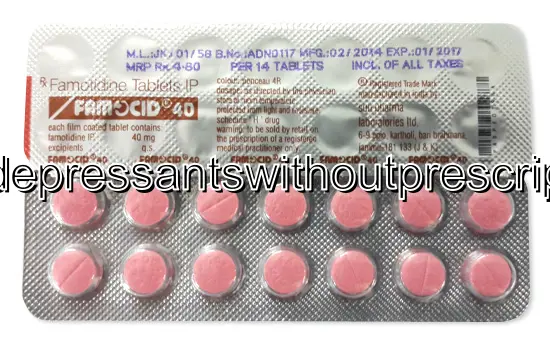| Package | Dosage | Price | Price per Dose | |
|---|---|---|---|---|
| Dosage: 20mg | ||||
| 336 pill | 20mg | £131.09 | £0.39 | |
| 224 pill | 20mg | £111.01 | £0.50 | |
| 168 pill | 20mg | £99.20 | £0.59 | |
| 112 pill | 20mg | £80.30 | £0.72 | |
| 84 pill | 20mg | £64.95 | £0.77 | |
| 56 pill | 20mg | £47.23 | £0.84 | |
| 28 pill | 20mg | £27.15 | £0.96 | |
| Dosage: 40mg | ||||
| 336 pill | 40mg | £151.17 | £0.45 | |
| 224 pill | 40mg | £119.28 | £0.53 | |
| 168 pill | 40mg | £99.20 | £0.59 | |
| 112 pill | 40mg | £76.76 | £0.69 | |
| 84 pill | 40mg | £59.04 | £0.71 | |
| 56 pill | 40mg | £46.05 | £0.81 | |
| 28 pill | 40mg | £24.79 | £0.87 | |

Famotidine Description
Understanding Famotidine
Famotidine is a medication commonly used in the treatment of conditions related to excess stomach acid. It belongs to a class of drugs known as histamine-2 (H2) receptor antagonists. These medications work by blocking the action of histamine on H2 receptors in the stomach lining, which in turn reduces the production of stomach acid. This reduction helps alleviate symptoms associated with acid overproduction, such as heartburn, acid reflux, and gastric ulcers.
Common Uses and Benefits
Famotidine is widely prescribed for conditions like gastroesophageal reflux disease (GERD), Zollinger-Ellison syndrome, and for preventing and treating stomach ulcers. Patients report significant relief from burning sensations, indigestion, and discomfort after beginning famotidine treatment. Its rapid onset of action and generally well-tolerated profile make it a popular choice among healthcare providers and patients alike.
Effectiveness and Patient Reviews
Many users find famotidine highly effective in managing their symptoms. Some report noticeable improvements within a few days of starting the medication. Its ability to control excess acid production not only provides symptomatic relief but also promotes healing of esophageal and gastric tissues. Patients often appreciate that famotidine minimizes disruption to their daily routines due to its ease of use and predictable action.
Possible Side Effects and Precautions
While famotidine is generally safe, like all medications, it can cause side effects in some individuals. Mild side effects include headache, dizziness, constipation, or diarrhea. Serious reactions are rare but may include allergic responses such as rash, swelling, or difficulty breathing. It is important for users to consult their healthcare provider if they notice any adverse effects or if they have underlying health conditions. Pregnant and breastfeeding women should seek medical advice before using famotidine.
Drug Interactions and Usage Tips
Famotidine can interact with certain medications, including drugs that require an acidic environment for absorption, such as some antifungals and certain HIV medications. To minimize interactions, patients should inform their doctor about all current medications. It is typically taken orally, with or without food, as directed by a healthcare professional. Consistent timing and dosing are essential to maximize its benefits and minimize side effects.
Conclusion
Overall, famotidine is a trusted and effective medication for managing excess stomach acid and related gastrointestinal conditions. Its ability to provide quick symptom relief, combined with a generally favorable safety profile, makes it a reliable choice for many patients. However, like any medication, careful adherence to dosing instructions and consultation with a healthcare provider are important to ensure safe and effective use.
